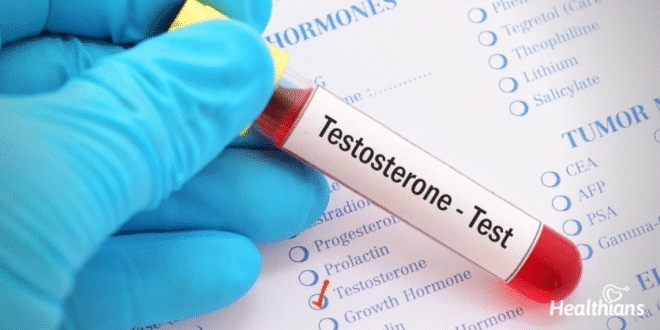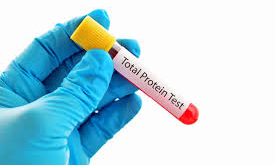Testosterone Test

Introduction of Testosterone Test
Hormones are the body’s chemical messengers, and among them, testosterone is one of the most influential. While it is commonly associated with male health, testosterone is equally important for women. It regulates reproductive functions, maintains muscle mass, strengthens bones, and even influences mood and energy.
A testosterone test is a medical investigation that measures the level of this crucial hormone in the blood. At HRTD Medical Institute, Mirpur, Dhaka, we provide advanced laboratory facilities and expert guidance for accurate hormone testing, including testosterone evaluation. Understanding this test is essential for patients, medical students, and healthcare professionals alike.
What is Testosterone?
Testosterone is the primary male sex hormone, though it is present in both sexes. It belongs to a group of hormones called androgens.
- In men, it is mainly produced in the testes.
- In women, smaller amounts are produced in the ovaries and adrenal glands.
Functions of Testosterone
- In Men
- Development of male reproductive organs
- Regulation of sperm production (spermatogenesis)
- Growth of facial and body hair
- Deepening of the voice during puberty
- Increase in muscle mass and bone density
- Maintenance of libido and sexual function
- In Women
- Contributes to bone strength
- Supports ovarian function
- Plays a role in sexual desire
- Helps maintain muscle tone and energy levels
Because testosterone affects such diverse systems, both low and high levels can cause medical problems.
What is a Testosterone Test?
A testosterone test is a blood test that measures the amount of testosterone circulating in the bloodstream.
There are two main forms of testosterone in the body:
- Total Testosterone – Measures both bound and free testosterone in the blood.
- Free Testosterone – Measures testosterone not bound to proteins (biologically active form).
At HRTD Medical Institute, we offer both total and free testosterone tests using advanced laboratory methods to ensure accuracy.
Why is a Testosterone Test Needed?
Doctors may recommend a testosterone test in several circumstances:
In Men:
- Infertility (difficulty conceiving)
- Erectile dysfunction
- Low sex drive
- Delayed puberty in young boys
- Decreased muscle mass or strength
- Chronic fatigue or depression
- Suspected hormonal disorders such as hypogonadism
In Women:
- Excess hair growth (hirsutism)
- Irregular or absent periods
- Deepening voice
- Acne and oily skin
- Polycystic ovary syndrome (PCOS)
- Infertility evaluation
In Children:
- Delayed puberty in boys
- Early puberty in both boys and girls
Thus, testosterone testing provides valuable insight into reproductive health, growth, and endocrine disorders.
How is the Test Performed?
At HRTD Medical Institute, the testosterone test is conducted with the highest safety standards.
Procedure:
- A healthcare professional cleans the skin with antiseptic.
- A small needle is inserted into a vein (usually in the arm).
- Blood is collected into a vial.
- The sample is labeled and sent to the laboratory.
- Results are usually available within 24–48 hours.
The process is quick, taking only 5–10 minutes, and causes minimal discomfort.
Preparation for the Test
To ensure accurate results, patients are advised to:
- Test in the morning (7–10 a.m.), when testosterone levels are highest.
- Fasting may be required (especially if other tests like lipid profile are being done simultaneously).
- Avoid strenuous exercise 24 hours before the test.
- Avoid alcohol for at least 24 hours.
- Inform your doctor about medications such as steroids, anticonvulsants, or hormone therapies.
At HRTD Medical Institute, our staff provides complete guidance to patients before testing.
Normal Testosterone Levels
Normal ranges can vary by age, sex, and laboratory techniques.
In Men:
- Total Testosterone: 300–1,000 ng/dL
- Free Testosterone: 50–210 pg/mL
In Women:
- Total Testosterone: 15–70 ng/dL
- Free Testosterone: 0.5–8.5 pg/mL
In Children:
- Levels differ by age and stage of puberty.
Our laboratory at HRTD Medical Institute follows internationally accepted reference ranges while also considering patient-specific conditions.
Causes of Abnormal Testosterone Levels
Low Testosterone (Hypogonadism)
- Testicular damage (injury, infection, surgery)
- Pituitary gland disorders
- Chronic diseases (diabetes, kidney failure, HIV/AIDS)
- Obesity
- Certain medications (opioids, steroids)
- Aging (natural decline after 40)
High Testosterone
- Testicular or adrenal tumors
- Polycystic ovary syndrome (PCOS) in women
- Use of anabolic steroids
- Congenital adrenal hyperplasia (genetic condition)
Symptoms of Testosterone Imbalance
Low Testosterone in Men:
- Decreased libido
- Erectile dysfunction
- Fatigue and depression
- Loss of body hair
- Muscle weakness
- Infertility
High Testosterone in Women:
- Excessive hair growth (face, chest, back)
- Deepened voice
- Irregular menstrual cycles
- Acne and oily skin
- Infertility
Recognizing these symptoms early and confirming them through a testosterone test at HRTD Medical Institute helps in timely treatment.
Interpretation of Results
Interpreting testosterone test results requires medical expertise.
- Low levels in men → may indicate hypogonadism, pituitary dysfunction, or chronic illness.
- High levels in men → could suggest tumors or steroid use.
- Low levels in women → may affect fertility and bone health.
- High levels in women → often linked with PCOS or adrenal disorders.
Doctors at HRTD Medical Institute provide personalized consultation after test results to guide treatment.
Clinical Importance of the Testosterone Test
- Diagnosis of Infertility – Both male and female infertility can be linked to testosterone imbalance.
- Evaluation of Puberty Disorders – Early or delayed puberty in children requires hormonal testing.
- Monitoring Hormone Therapy – Patients undergoing testosterone replacement therapy need regular monitoring.
- Detecting Tumors – High testosterone may indicate tumors in adrenal glands or testes/ovaries.
- Sports and Doping Investigations – Abnormally high testosterone can reveal anabolic steroid misuse.
Testosterone Test at HRTD Medical Institute
At HRTD Medical Institute, Mirpur, Dhaka, we pride ourselves on offering:
- Modern laboratory facilities with automated analyzers.
- Skilled laboratory technologists trained in hormone testing.
- Affordable test packages for students, patients, and the community.
- Accurate reports reviewed by qualified pathologists.
- Patient counseling for interpretation of results and treatment guidance.
Our institute not only serves patients but also provides training opportunities for medical students to understand endocrine testing in depth.
Training and Education at HRTD Medical Institute
As a medical training institute, we emphasize practical education. Students here learn:
- Blood sample collection and processing
- Hormone assay techniques
- Interpretation of hormone profiles
- Clinical applications in endocrinology
- Case studies involving testosterone imbalance
By combining theory with hands-on experience, we prepare students for professional careers in pathology and diagnostic medicine.
Frequently Asked Questions (FAQ)
Q1. Is the testosterone test painful?
A: Only a small needle prick is involved, causing mild discomfort for a few seconds.
Q2. How long does it take to get results?
A: At HRTD Medical Institute, results are usually available within 24–48 hours.
Q3. Can women also take a testosterone test?
A: Yes, women may need this test if they show symptoms like irregular periods, excess hair growth, or infertility.
Q4. What is the best time of day for testing?
A: Morning (7–10 a.m.) is recommended due to natural hormone fluctuations.
Q5. Do I need to fast before the test?
A: Fasting is not always required but may be recommended if combined with other tests.
Conclusion
The testosterone test is a vital diagnostic tool for evaluating reproductive health, hormonal balance, and overall well-being. Both men and women may require this test at different stages of life.
At HRTD Medical Institute, Mirpur, Dhaka, we are committed to providing accurate, affordable, and reliable testosterone testing services. Whether you are a patient seeking diagnosis or a student pursuing medical education, our institution is here to guide you with excellence in laboratory medicine.
By understanding the significance of the testosterone test, individuals can take proactive steps in managing their health, ensuring early detection of disorders, and receiving proper treatment.
 Pathology Training Institute in Bangladesh Best Pathology Training Institute in Bangladesh
Pathology Training Institute in Bangladesh Best Pathology Training Institute in Bangladesh


